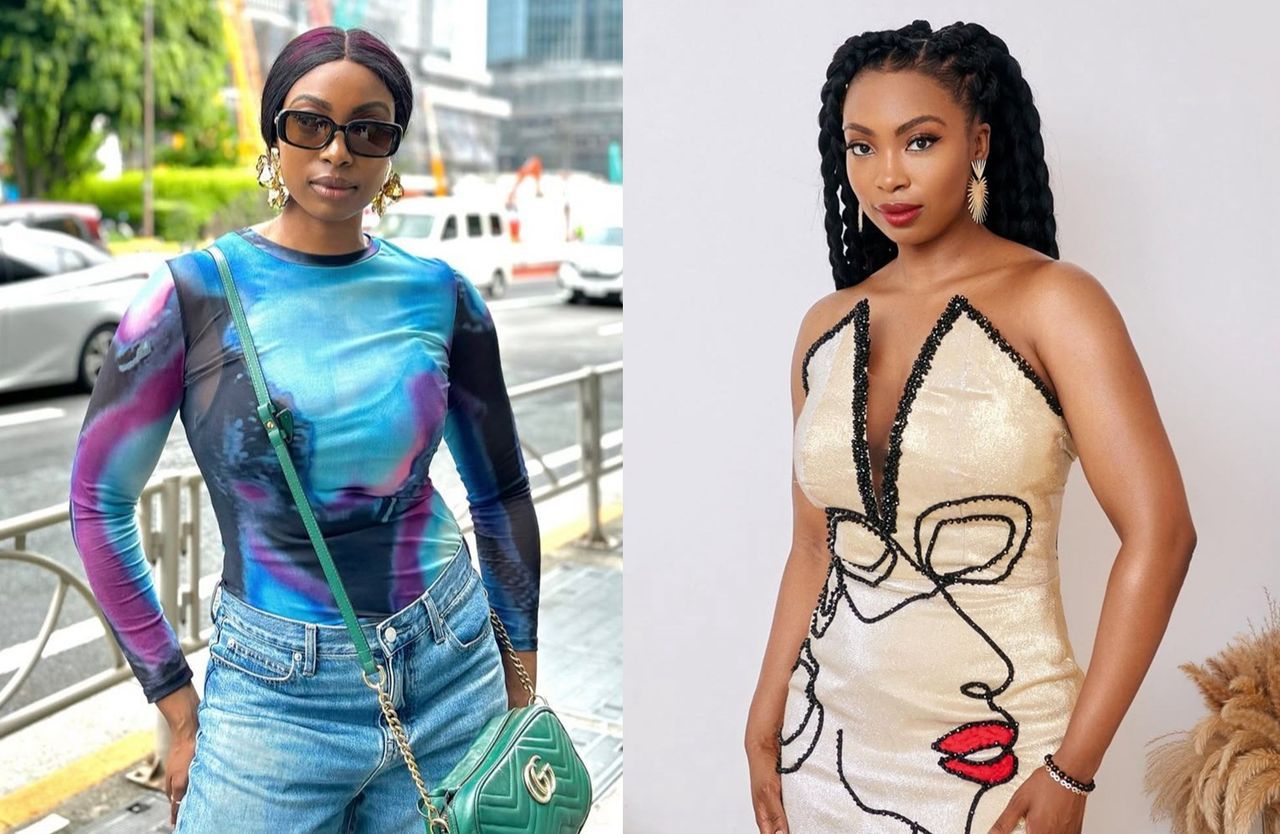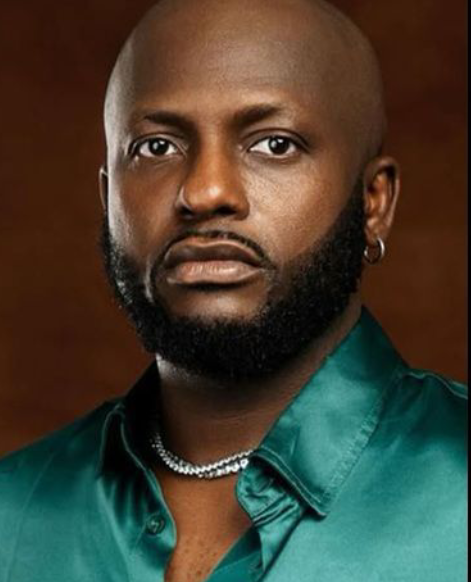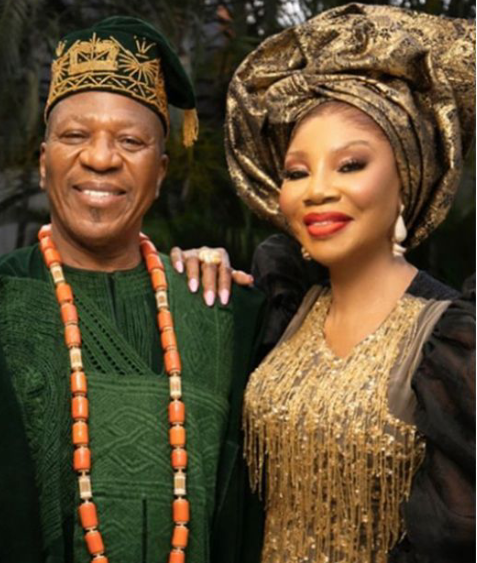
Media Personality Bolanle Olukanni Sparks Debate with Controversial Relationship Stance: \"I Don\'t Want My Partner Following My Social Media, But I Want to See Theirs\"
In the world of modern dating, where social media plays a pivotal role in shaping perceptions and relationships, Nigerian media personality Bolanle Olukanni has stirred a heated debate with her recent comments about social media dynamics within romantic relationships. The popular host, known for her candid opinions and vibrant personality,
In the world of modern dating, where social media plays a pivotal role in shaping perceptions and relationships, Nigerian media personality Bolanle Olukanni has stirred a heated debate with her recent comments about social media dynamics within romantic relationships. The popular host, known for her candid opinions and vibrant personality, recently took to social media to share her unconventional perspective on how couples should navigate online interactions, and her statements have sparked a mix of reactions from fans and followers.
Bolanle Olukanni, a well-known figure in the Nigerian entertainment scene, made headlines when she openly expressed that while dating someone, she would prefer not to have them following her on social media. However, she made it clear that she would still want to be able to see their social media activities. This statement, which many found both intriguing and controversial, has raised questions about privacy, trust, and the boundaries of online interaction between couples.
According to Bolanle, maintaining a certain level of privacy on social media is crucial when in a relationship. She suggested that not having a partner follow her online allows her to express herself freely without feeling constantly scrutinized. In her words, there is a sense of liberation that comes with not having a romantic partner as a follower on her social media platforms. She also pointed out that her stance is not born out of secrecy or the desire to hide anything, but rather a way to maintain individuality and personal space.
The media personality did not stop there; she also offered some advice to women regarding relationships and social media vigilance. Bolanle emphasized the importance of women checking their partner’s Twitter accounts, suggesting that the platform can reveal aspects of a person\'s character and thoughts that may not be apparent in real life. She argued that Twitter, unlike other platforms, often serves as a more unfiltered reflection of one’s true opinions and beliefs, given its text-based nature and the tendency for people to share spontaneous thoughts.
Her advice to women to scrutinize their partner’s social media presence, particularly on Twitter, has sparked intense discussions. While some followers agreed with her, noting that social media can indeed reveal a lot about someone’s personality and intentions, others felt that such an approach could border on insecurity and obsession. Critics argued that over-analyzing a partner’s online activity could potentially harm trust and create unnecessary tension in the relationship.
Bolanle Olukanni’s stance has prompted a deeper conversation about modern relationship etiquette in the digital age. Social media has undeniably become an integral part of dating, with many couples sharing milestones, affectionate posts, and public declarations of love. However, Bolanle’s take challenges the commonly accepted norm of intertwined digital lives. She seems to advocate for a balance where both partners can retain a sense of independence while still being in a committed relationship.
Interestingly, Bolanle’s viewpoint is not entirely isolated. Some social media users have echoed similar sentiments, pointing out that maintaining some level of distance online can help preserve the relationship’s freshness and reduce unnecessary pressure. They argue that couples often feel obligated to perform their love stories for public consumption, and removing a partner from one’s social media sphere could alleviate that burden.
However, not everyone shares this view. A considerable number of people expressed their disagreement, insisting that not allowing a romantic partner to follow one’s social media could indicate a lack of transparency or even suggest something to hide. Some argued that if two people are genuinely in love and committed, there should be no problem with being connected on social platforms. They believe that mutual social media engagement strengthens trust and promotes openness.
The issue of social media boundaries in relationships is not a new one, but Bolanle’s candid take has undoubtedly reignited the conversation. While it is not uncommon for couples to face challenges related to online behavior, her emphasis on checking a partner’s Twitter while maintaining a degree of social media privacy has left many pondering where the line should be drawn.
Relationship experts have also weighed in on the matter, offering nuanced perspectives on social media dynamics between partners. Some suggest that it ultimately boils down to individual preferences and mutual understanding. If both partners agree on maintaining separate online spaces, it might actually work in favor of the relationship by reducing the likelihood of social media-induced conflicts. On the other hand, if one person feels uncomfortable or insecure about being excluded from their partner’s digital life, it could lead to issues that need to be addressed.
Bolanle Olukanni’s controversial remarks also highlight a growing trend where individuals seek to balance their personal identities with their romantic lives in the age of digital connectivity. As public figures often find their relationships scrutinized, maintaining a level of privacy might be essential for their mental well-being and relationship health. Yet, for everyday couples, the decision to follow or unfollow each other on social media might carry different implications, depending on their communication style and level of trust.
As the debate continues to unfold on social media platforms, one thing remains clear—there is no one-size-fits-all answer to the question of social media etiquette in relationships. For some, sharing every detail of their love life online is a natural expression of affection. For others, like Bolanle Olukanni, keeping certain aspects of their digital presence separate from their romantic relationships allows for greater autonomy and personal expression.
Ultimately, navigating social media boundaries requires open and honest communication between partners. Whether one chooses to follow or not follow their significant other’s online activity should ideally be a mutual decision rooted in understanding and respect. While Bolanle’s viewpoint may seem unconventional to some, it also sheds light on the evolving ways in which people manage their relationships in an increasingly connected world.
As opinions continue to pour in, Bolanle Olukanni remains unapologetic about her stance, demonstrating that personal preferences in relationships can vary widely and that there is room for diverse perspectives when it comes to love and digital spaces. Whether people agree with her or not, her bold assertion has undoubtedly sparked a conversation worth having.
Share this post
Related Posts

“He Slapped Her in a Wedding Gown”: Photographer Recounts Horrific Moment a Groom Assaulted His Bride During Private Shoot
In a society where wedding days are supposed to be filled with love, laughter, and...

\"Make Una Calm Down o!\" — Comedian Igosave Cries Out Over Alarming Surge in Begging Across Nigeria
In a candid and emotionally charged social media post that has since sparked widespread conversation...

42 Years Later, Betty Irabor Still Wants Forever with Her ‘Soni Boy’ in Emotional Anniversary Tribute
In a world where marriages are breaking down faster than they are built, celebrated Nigerian...